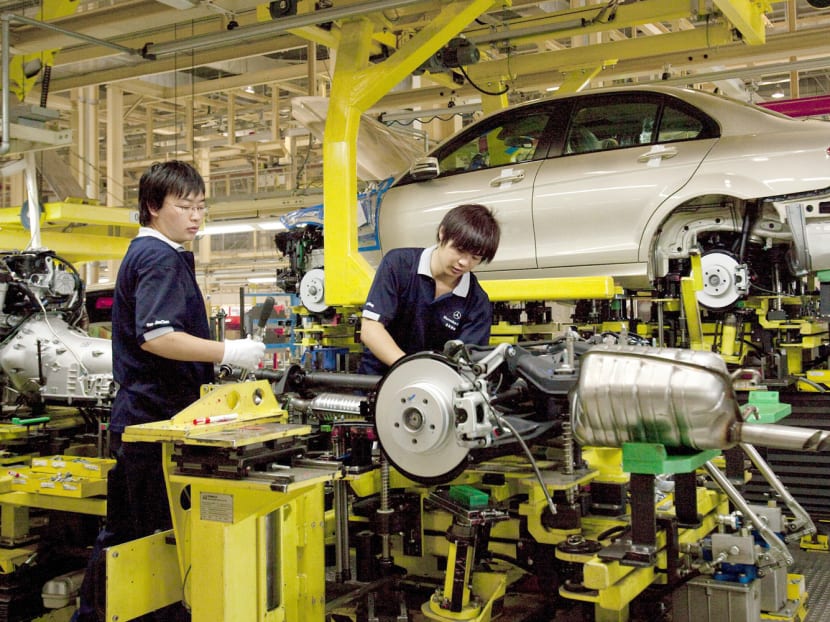Mercedes-Benz guilty of price abuses: Beijing
BEIJING — China’s government yesterday said it has concluded that Mercedes-Benz violated an anti-monopoly law and charged excessive prices for parts, adding to a growing number of global automakers snared in an investigation of the industry.

An employee working on the assembly line
at the Beijing
Benz Automotive plant in China. There is no indication yet of what penalty the German automaker might face for engaging in ‘vertical
price-fixing’.
Photo: Bloomberg
BEIJING — China’s government yesterday said it has concluded that Mercedes-Benz violated an anti-monopoly law and charged excessive prices for parts, adding to a growing number of global automakers snared in an investigation of the industry.
The luxury unit of Germany’s Daimler abused its control over supplies of spare parts to engage in “vertical price-fixing”, said the official Xinhua news agency. It said investigators from the price bureau of the eastern province of Jiangsu found prices were so high that purchasing the parts used to make one Mercedes C-class car would cost the equivalent of buying 12 vehicles.
An official earlier said Volkswagen’s Audi unit and Fiat Chrysler Automobiles’ Chrysler would face unspecified punishment for violating the anti-monopoly law.
Chinese regulators have launched investigations of foreign auto, technology, pharmaceutical and dairy companies over the past two years using the 2008 anti-monopoly law in an apparent effort to force down consumer prices.
“Mercedes-Benz is a typical case of vertical price-fixing — that is, the use of its dominant position in after-market parts to maintain price controls,” said Mr Zhou Gao, chief of the Jiangsu price agency’s anti-monopoly unit.
It gave no indication of what penalty Mercedes might face. In response to questions, Mercedes said it was assisting the authorities in the investigation.
Yesterday’s report gave the clearest explanation yet of the grounds for the industry probe. Industry analysts have suggested regulators were motivated by complaints that global automakers use their control over supplies of spare parts to charge inflated prices.
Toyota Motor has said its Lexus unit is also under scrutiny. General Motors’ main China joint venture said last week it has responded to requests by regulators for information but gave no indication it was the target of a formal investigation.
Business groups welcomed the enactment of China’s anti-monopoly law in 2008 as a step towards clarifying operating conditions. Since then, they have said it is enforced more actively against foreign companies than local rivals.
Other companies under investigation include Qualcomm, a California-based maker of chips used in mobile phones, and software giant Microsoft.
Mercedes and Audi responded earlier to the investigation by cutting prices of replacement parts such as windshields by up to 38 per cent. Chrysler cut prices of imported vehicles. AP





